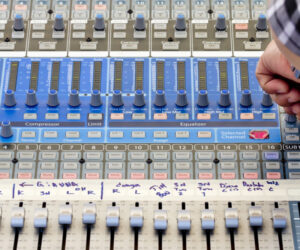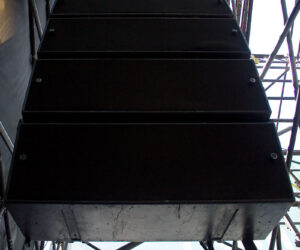“Define rhythm.”
This was the simple command of an instructor in recording school. A challenge to define a word we all understood, but couldn’t seem to articulate.
“Rhythm is the anticipation of events. We know to clap on four based on our pattern from one, two and three.” His words. Maybe not the way Webster would spell it out, but an effective interpretation.
That discussion summarized much about life in general, as well as the production industry. Businesses grow and thrive under leaders with rhythm. Albums are arranged and produced, films are shot and edited, shows are planned and executed, systems are sold and installed… All because someone understands how to anticipate events.
Someone can find the flow and compare it to previous experiences and make the magic happen, because they have rhythm.
Rhythm Doesn’t Only Apply To Music
After a few years in the industry, you find the rhythm to every aspect. It’s usually how we spot the seasoned road dogs.
One of my earliest lessons in setting up shows involved understanding how to plan the “out” from the “in.” Knowing our exit strategy before we even unloaded the truck. Similar to playing chess, we learned to plan each move according to how it would affect the following moves.
Sound checks, recording sessions, even system installations always move so much more smoothly when we respond to the various scenarios with rhythm, based on a good attitude that is constantly learning and adapting.
I told crews that we generally had unlimited time to pack up after a show, but only so much time to set everything up. Well, the actual line was… “You have your whole life to pack up and five minutes to setup, make it count.” Usually, I was pretty aggravated about how the crew was handling things, by the time I mentioned that point.
The more unorganized crews would rush load out, throwing gear into the truck as fast as possible with beer on their mind. The final “idiot check” always meant searching each venue for cables, microphones and random small pieces that were hidden in dark corners and around the stage. Not the best way to manage gear, but almost always necessary.
Carefully inventoried cases with clearly labeled compartments eliminates the frustration of constantly replacing missing equipment. Properly rolled and packed cables makes the next event less stressful. Knowing what questions to ask also makes life easier when planning the next show.
All of that comes with understanding the rhythm of the business. We know how to make the best use of our time and resources based on previous experiences. It’s one of the things that make veterans more valuable and survive longer.
It’s about working smarter, not harder. Outsmarting the gig. Staying on top of the situation based on years of experiences that train you to be better at what you do.
If you want to succeed, find the rhythm.















